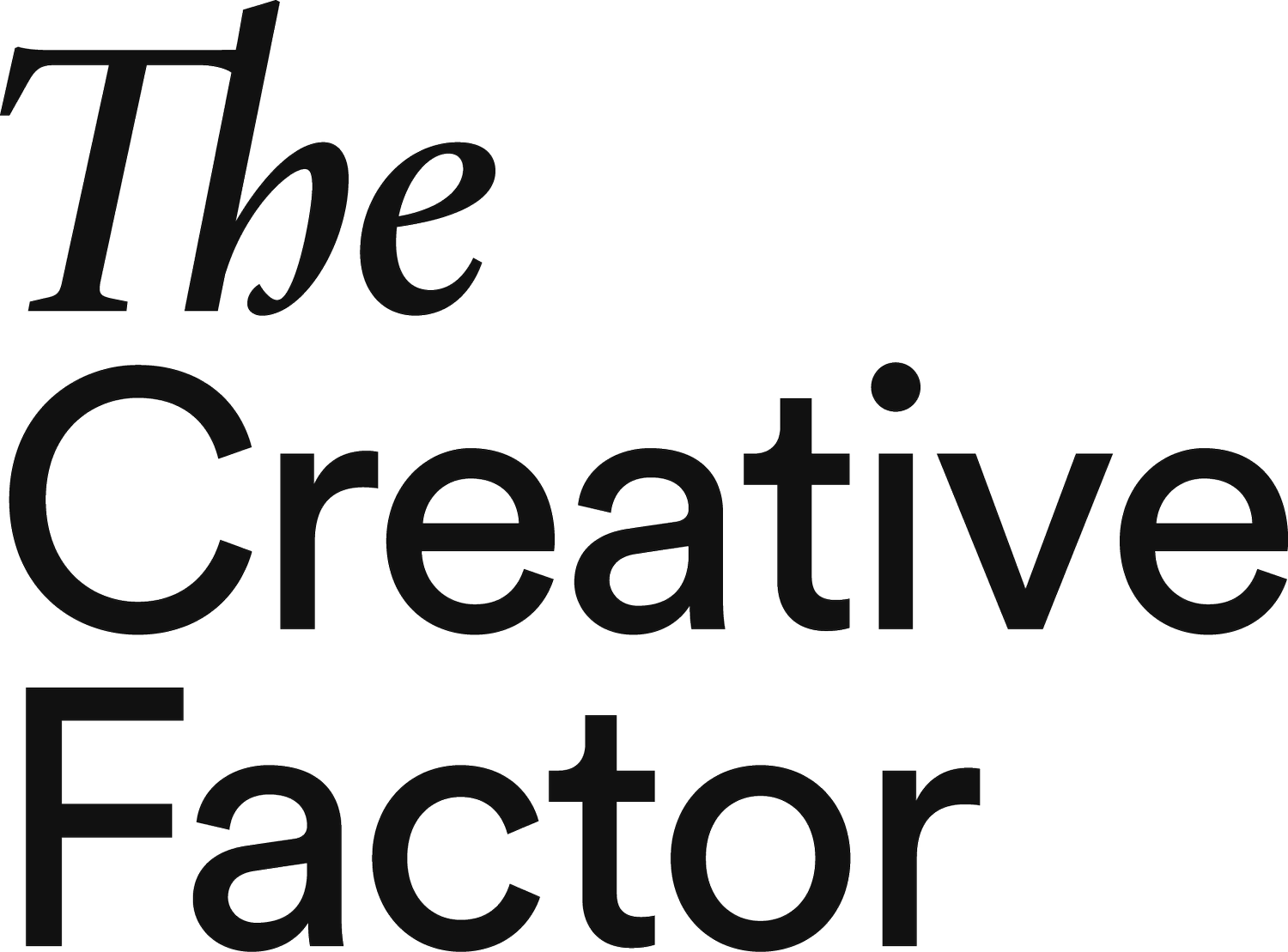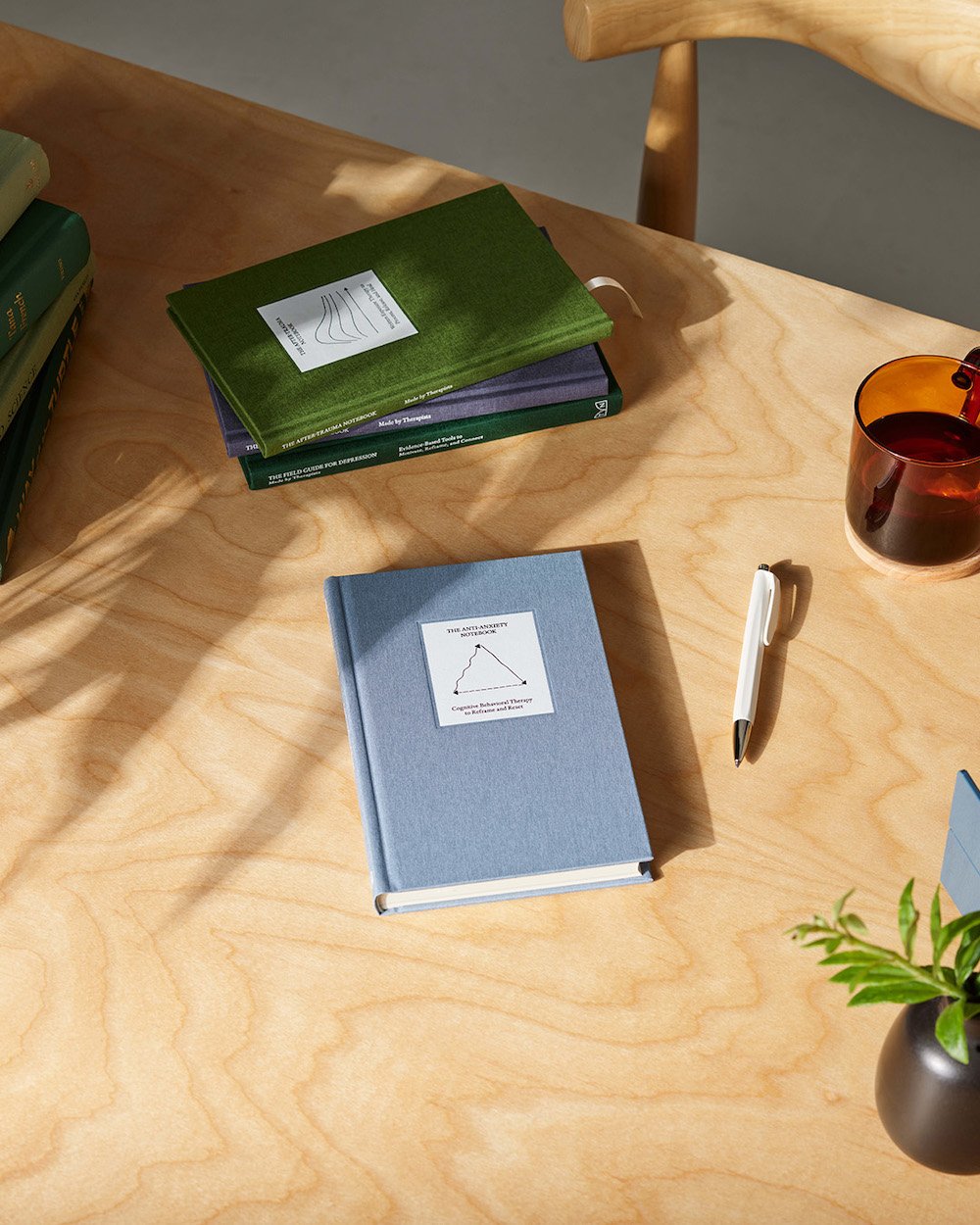Everyone is Stressed. Therapy Notebooks Are Designed to Help
Varshil Patel created Therapy Notebooks from personal experience. Images c/o Design Therapy.
These days, everybody is stressed about everything all the time. Co-workers and jobs, FOMO and rising costs, even our vacations are pushing us over the edge — you’ll sit in row 38D in a metal seat that forces you to twist your body in a pretzel for hours and be fed nothing but peanuts. And you’ll like it!
All the stress has contributed to an increase in the number of adults who receive mental health therapy. It’s now one-in-four, which is up from one-in-seven only five years ago. Varshil Patel is one of those who started going to therapy, and he noticed an educational resources gap between the clinical world and peoples’ everyday needs. Too often, books targeted at consumers read like happiness tomes and miss the integrity of clinical tools. And those designed from the therapist point of view feel like a manual. So he and his friend Wesley Zhao decided to create Therapy Notebooks to deliver both clinical efficacy and real-life accessibility.
The notebooks range from The Anti-Anxiety Notebook to The Field Guide to Depression and they are based on a robust body of peer-reviewed research studies and industry experts, including clinical psychologists and licensed therapists. They can be used in tandem with therapy to reinforce what one learned from their therapist. They can also be used on one’s own to help them learn more tools and incorporate them into their day-to-day life. Customers also use them proactively to improve their mental health.
Here, Patel speaks to the interplay of science and aesthetics in the notebooks, explains why they made the move from digital to analog, and shares how the couples counseling sessions he went to with Zhao benefitted both their professional relationship and the notebooks.
The notebooks are designed to be self-guided.
What makes Therapy Notebooks unique?
It is our attempt to merge clinical expertise with something that is usable for a customer. Most clinical mental health tools today are translated to people through a therapist, so the therapist will teach you about cognitive behavioral therapy or about balance within the therapy session. We’re trying to make these things easy for someone to learn within the context of a guided journal. That’s important from a design perspective because, rather than packing in a bunch of information, which can feel overwhelming, we guide the user to just start doing. We’re trying to create a teaching experience in the context of clinical mental health.
The other big difference between these notebooks and other mental health products is that these are an analog mental health tool. The reason we doubled down on notebooks is that users love how these take them away from their devices.
What led you to this work?
A few years ago, I wouldn’t have predicted that this would be what I’d be working on today. Through my own experiences I’ve always been interested in mental and behavioral health. But the conversation around mental health in 2017 was different than it is today. I learned more about what it looks like to engage with therapy and realized there was so much that can be done. I started to connect the dots between my own interests in human psychology, understanding how people work, and life trajectories. Life trajectories often feel predicated on the amount of support and education someone has. Everyone is far more capable of change than they think they are, as long as they are equipped with tools, guidance, and support. And if you can uplift a person, they can also flip an entire community along with them. I love thinking about and building things that help people change because it gives us a reason to be hopeful.
Customers use the notebooks proactively to improve their mental health.
How have you turned that mission into Therapy Notebooks?
My co-founder Wesley Zhao and I were best friends in college. We shared an interest in mental health and how people work. In 2019, we both quit our jobs and started trying different ideas in the mental health space. We didn't have a great fit for exactly what we were going to build; we just had ideas. And we were excited about them. We would go to Washington Square Park and Prospect Park and interview people: Do you go to therapy? If you don't go to therapy, why not? If you do go, what’s good about it and what’s not? While we interviewed people, we started building different tools for therapists.
From our interviews, we learned there was clearly a knowledge gap. The therapist had access to valuable knowledge, but everyday people didn’t know that most of these tools existed. Our early idea was that we could make audio courses taught by therapists — this idea eventually became Therapy Notebooks. First we built a digital educational product, and even though customers told us they liked it in theory, they ultimately weren’t using it. We did some digging and we learned that it was because there was already so much happening on their devices. As a consumer, we inherently compare all of our digital products to one another, including things like Netflix. That’s why we decided to go the analog route. Customers loved it.
Take us inside a specific example of how to use these.
In The Field Guide for Depression, there is a written exercise borrowed from Dialectical Behavioral Therapy that helps you more thoughtfully approach an interpersonal situation. It’s meant to help you prepare for a conversation you’re going to have in the future. Maybe it’s a difficult conversation where you want to be thoughtfully prepared and make sure you assert your needs in a clear way.
There is a lot of stress these days about jobs — working at them, keeping them. Which of your books could help those who are experiencing this stress?
In those work situations, that stress is very real and it can be beneficial to confront our own thought patterns. The Anti-Anxiety Notebook can help people understand their thought patterns and reframe the thought patterns that are unhealthy and cause them stress.
Why did you and your co-founder Wesley go into couples counseling?
We started couples counseling because we were best friends, and it’s always tricky territory to start a company with friends. We have different personalities and we felt given how different we are it would be useful for us. And, since we spent all of our time in the mental health world, it felt aligned with our work. It has made me a better business partner and taught me so much over the past few years.
What impact did it have?
Wesley stepped away from the business last year, which was a difficult decision for us to collectively make. One reason why we’re still friends today is that we went to couples counseling as co-founders for the entirety of our relationship as co-founders. The tools we learned from that helped us navigate the difficulties of running the company.
If you’d like to read more from Creative Factor, subscribe to our newsletter. Or looking to tell your brand story? Introducing Creative Factor’s Brand Storytelling Studio.
Plus, more great reads, right this way…



